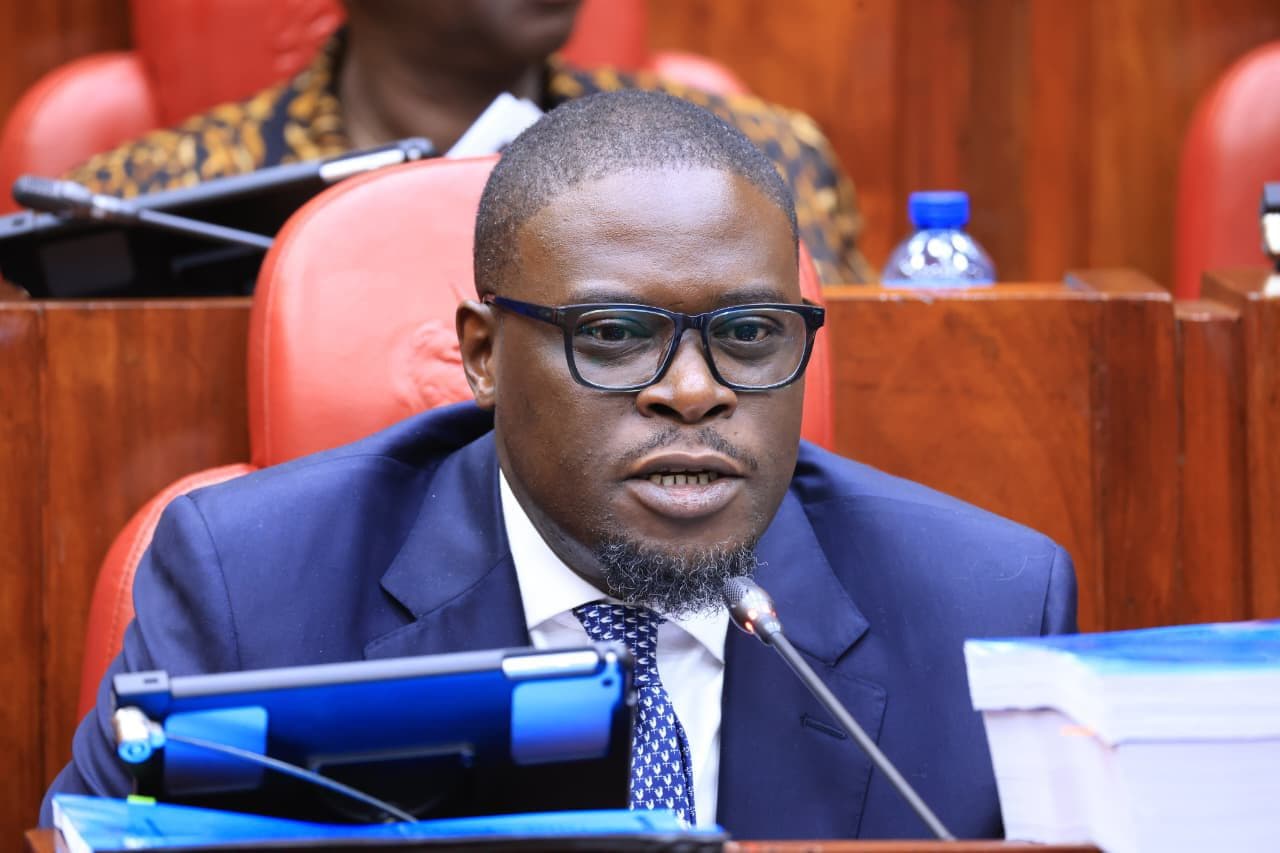We're loading the full news article for you. This includes the article content, images, author information, and related articles.
The dramatic walkout by Nairobi Senator Edwin Sifuna and Kisii Senator Richard Onyonka from a Senate committee meeting highlights escalating tensions over Governor Johnson Sakaja's financial stewardship of Kenya's capital

NAIROBI, KENYA – A high-stakes Senate committee session descended into turmoil on Tuesday, November 25, 2025, when Nairobi Senator Edwin Sifuna and his Kisii counterpart, Senator Richard Onyonka, stormed out of a hearing convened to question Governor Johnson Sakaja on Nairobi City County's controversial banking arrangements and financial management. The confrontation underscores a deepening political rift and intensifies scrutiny over the handling of billions of shillings in public funds meant for service delivery to millions of city residents.
The heated exchange occurred during a session of the Senate's Committee on Devolution and Intergovernmental Relations. The committee was probing the county's management of its numerous commercial bank accounts and a contentious decision to move funds for health facilities from the established Co-operative Bank to Sidian Bank, a smaller tier-three lender. According to reports, the senators' dramatic exit followed what they perceived as evasiveness from the governor regarding the rationale behind these financial decisions. Governor Sakaja, in his defense, maintained that the county's actions were legal, administrative, and aimed at improving efficiency, particularly in the payment of staff salaries.
The walkout is the latest flashpoint in a long-simmering feud between Senator Sifuna and Governor Sakaja, reflecting broader political tensions between the Azimio la Umoja and Kenya Kwanza coalitions. Senator Sifuna, in his oversight role, has repeatedly accused the governor of mismanaging the county and disrespecting Senate authority. These tensions have been visible in previous committee meetings, where Sifuna has criticized Sakaja for allegedly prioritizing personal travel and political expediency over his responsibilities to Nairobians. In one notable clash in February 2024, Sifuna reprimanded the governor for only appearing before the Senate when seeking additional resource allocation for counties, rather than to answer accountability queries.
Governor Sakaja's administration has faced persistent summonses from various Senate committees over a range of issues, from urban renewal plans to the performance of early childhood education programs. This history of non-appearance and perceived disrespect has previously led to fines and threats from senators to halt the disbursement of funds to the county, illustrating a breakdown in the formal relationship between the county executive and the national oversight body.
The immediate trigger for Tuesday's confrontation was the county's banking practices. Concerns have been mounting nationally over the proliferation of commercial bank accounts held by county governments, which the Controller of Budget estimates to be over 5,400. Lawmakers argue these numerous accounts create opacity, expose public funds to risk, and undermine accountability. The Senate has been pushing for real-time access to these accounts for oversight bodies like the Auditor-General and the Central Bank of Kenya (CBK). However, a regulatory gap in the Public Finance Management (PFM) Act has been identified, which limits the CBK's authority to enforce the closure of unauthorized accounts.
Senator Sifuna has been particularly vocal about Governor Sakaja's decision to move health facility funds to a smaller bank, framing it as a politicized move that prioritizes alliances over sound financial stewardship. The walkout by Sifuna and Onyonka—a seasoned politician known for his vocal stance on national governance issues—amplifies these concerns, signaling a coordinated effort to demand greater transparency from the governor.
The standoff in the Senate is more than political theatre; it strikes at the heart of accountability for Nairobi's vast financial resources and the effectiveness of devolution. The Auditor-General's most recent report for the 2023/2024 financial year, while noting improvements, still issued a qualified opinion on the county's finances, indicating the presence of material misstatements. This followed years of adverse and disclaimer opinions, pointing to persistent governance challenges. For Nairobi residents, these high-level disputes have tangible consequences. Alleged financial mismanagement directly impacts service delivery, from garbage collection and road maintenance to the proper functioning of hospitals and schools. The ongoing power struggles risk paralyzing development projects and eroding public trust in the county government's ability to manage its affairs. The Senate's investigation into Nairobi's finances is now a critical test for the principles of devolution, probing whether county governments can manage public resources transparently while submitting to rigorous national oversight.
Keep the conversation in one place—threads here stay linked to the story and in the forums.
Sign in to start a discussion
Start a conversation about this story and keep it linked here.
Other hot threads
E-sports and Gaming Community in Kenya
Active 9 months ago
The Role of Technology in Modern Agriculture (AgriTech)
Active 9 months ago
Popular Recreational Activities Across Counties
Active 9 months ago
Investing in Youth Sports Development Programs
Active 9 months ago
Key figures and persons of interest featured in this article